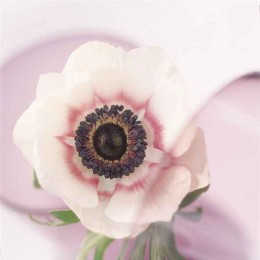
info about the flowers & plants association |
| the latest events in the flower world |
view the latest flower fashion trends |
green & gorgeous – boost your wellbeing with houseplants |
advice on where to buy & recommended retailers |
data & details about the flower industry |
how
to join and what benefits we can offer you as a member |
for
journalists & the media – what we can do for you |
index
of pages on this site to aid your navigation |
|
Anemone
Name: Comes from "anemos",
the greek word for wind. Sometimes called the windflower. Pronounced a-NEM-o-nee
Description: The outsize anemones, which growers have managed to produce in the last few years, are remarkable, and perfect for placing singly in display vases, to show off their fragile beauty. Their ferny leaves make a perfect frame for the flowerheads. Origin: Eastern part of Mediterranean area and Asia Minor.They are now grown across Europe, particularly Italy and Israel. Colour: Vibrant shades of red, purple and pink, with jet black hearts ringed with white. The all-white anemone is rare, it has a yellow-green heart. Availability: Main season September to May Family: Anemones belong to the buttercup family.. The best cut flower varieties are "Mona Lisa" forms, which have large flowers and long, strong stems. Care Tips: Anemones do not like being out of water for any length of time and take water in quickly, so water levels should be checked regularly. However they should not be placed in water that is too deep Trivia: Mythology: It is said that the goddess Flora was jealous of her husband's attentions towards the nymph Anemone and so transformed her into the wind flower and left her at the mercy of the North Wind. Medicinal: Used for cramping pains, menstrual problems and emotional distress.
| |
 |